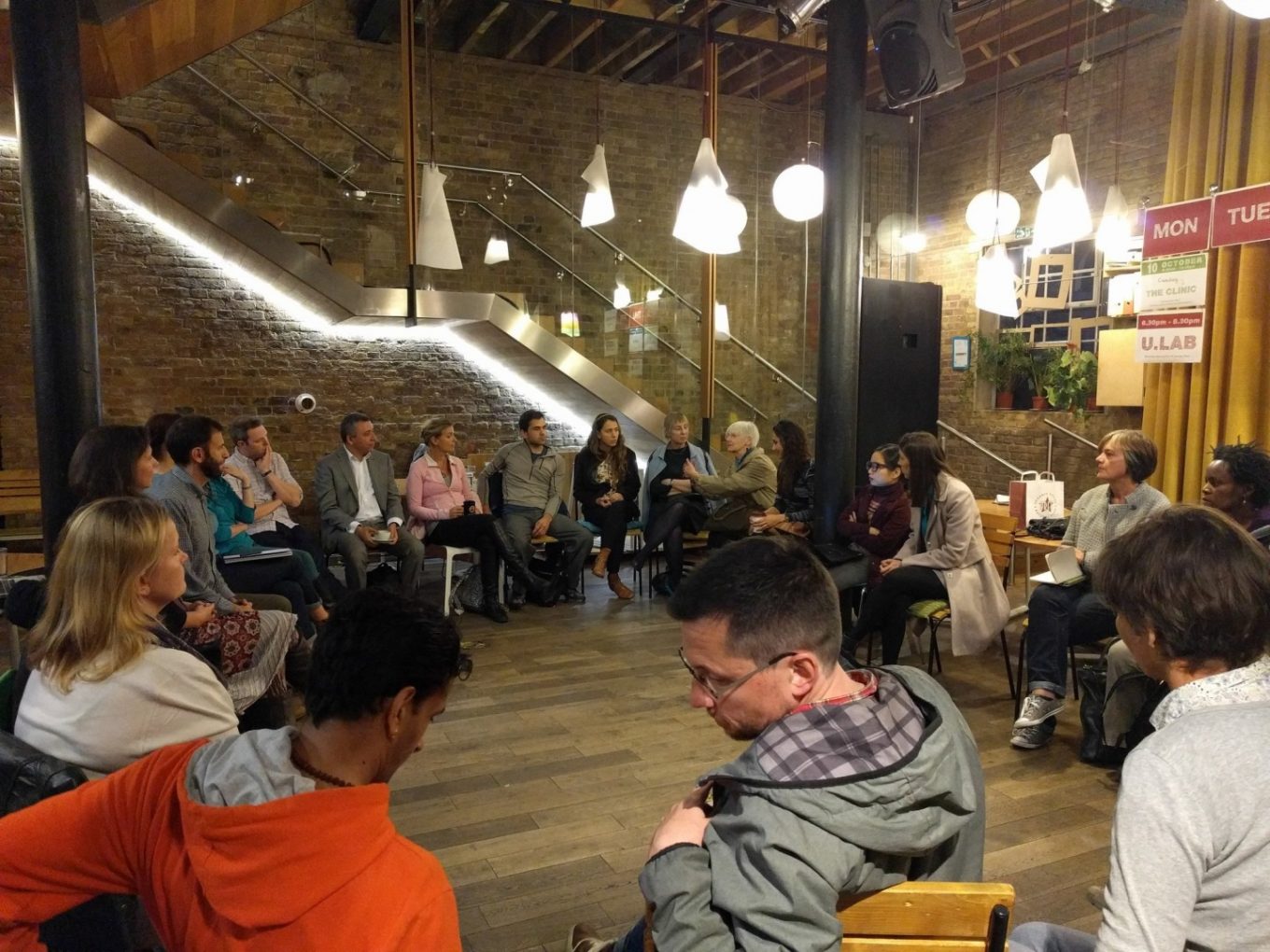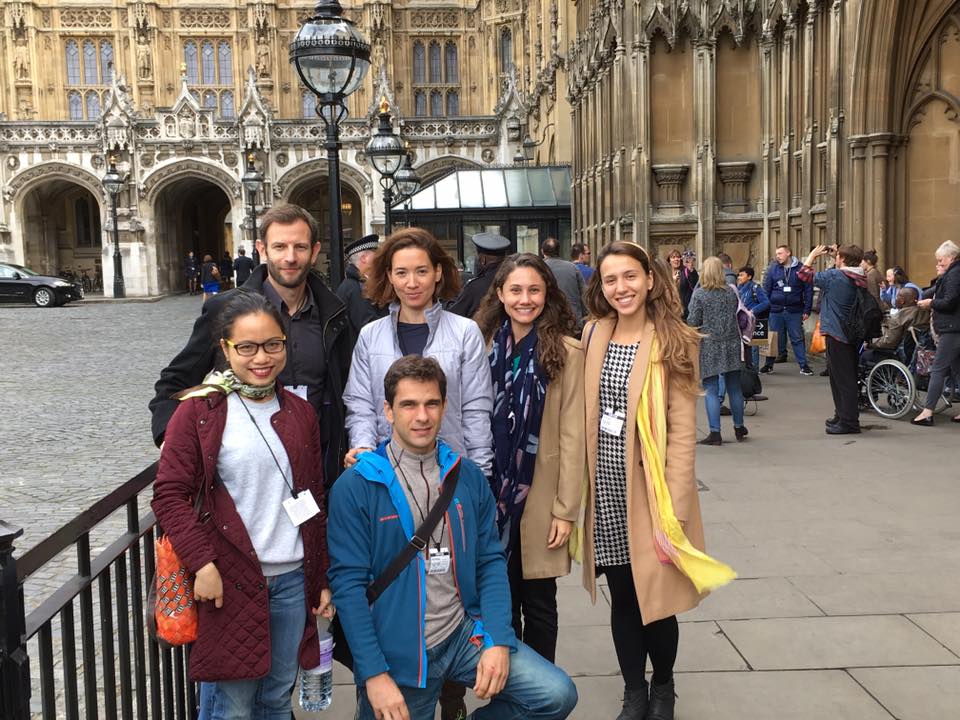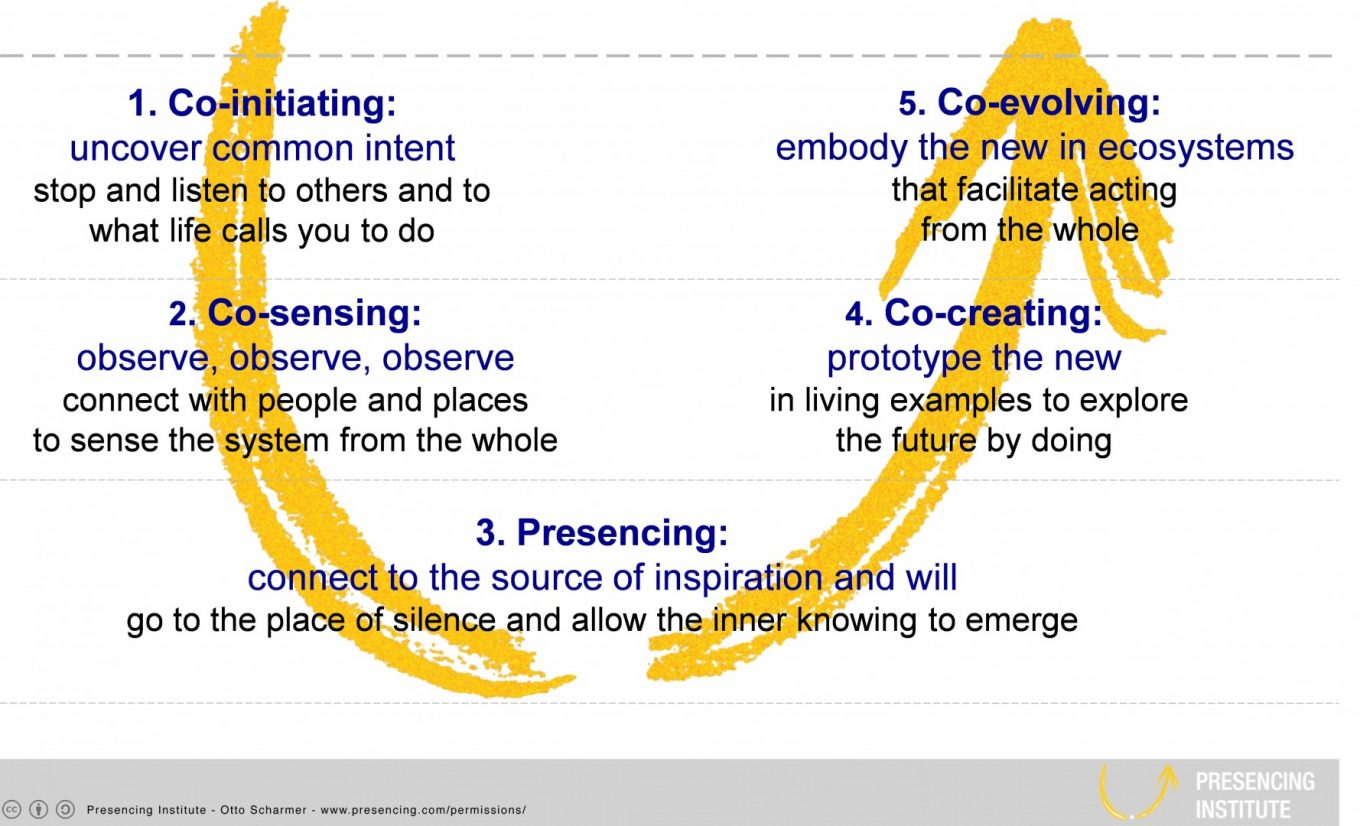
U.lab is an online course that invites participants to go out and explore the world around them and use skills of awareness to sense what’s happening. The idea is to pay attention to what’s trying to emerge as a basis for creating real projects for social and environmental transformation. Over 20,000 people around the globe are currently engaged in this experiential course.
Since mid September a group of over 35 people participating online have been meeting in person at Impact Hub King’s Cross in London every week to share and support each other on their journey of learning.
Around half of those participants have formed a group to investigate the theme of Reinventing Democracy. I’m part of that group and we’re a diverse bunch that has amongst us students, a community organiser, therapists, facilitators, a public policy consultant, participatory planner, activists, coaches to name but a few of our life roles. Most of us are Londoners of diverse nationalities and our field of investigation is Democracy in the world around us.
For the moment this means our group is bringing its collective attention to what is actually going on in Britain right now. In a world where the established systems of government and democracy are failing to adapt to seismic forces that have given rise to unprecedented effects such as Brexit, fundamentalism and climate change we’re all moved by a conviction in the necessity for new approaches.
Our group members have varying degrees of knowledge about government, democracy and political systems. However this is not an obstacle to our project. The starting point for investigation using U.lab methodologies is one of listening and seeing with fresh eyes. Whether we feel we’re experts or not, we suspend judgment and all the internal voices that think they know the answers. We venture outside our own boundaries and encounter people and situations to practice deep listening.
When it comes to democracy the scope of the system and the people to listen to is obviously vast. So we’ve decided that each of us will follow our interests and find ways to listen the people we feel called to hear from.
Some will go and do stakeholder interviews with people from within systems of governance. I plan to speak to a civil servant and my local mayor of the Borough of Newham. Others wish to hear the voices on the margins of society such as the homeless or children or people from regions outside of London experiencing anger with the status quo which had high proportions of leave votes in the EU referendum.
The initial questions we have are: what does democracy (or government and politics) mean for you? What would you like them to be in the future?
Our first learning journey has taken us to the seat of power in the UK: the House of Commons in Westminster. A group of 6 of us spent an hour observing and listening to a debate about how parliament will scrutinise the British government in its process of Brexit talks with the EU. Everything was up for observation: the politicians, our own reactions and listening to the emerging whole of that particular situation and context.

In our debrief we shared frames of what we’d noticed: “a sense of heaviness of the past and ritual, will this get us anywhere?, it’s warlike rather than win/win, a predominance of men, a lack of diversity and inclusiveness, absent and disengaged body language punctuated by moments of real interest from passionate speakers. If parliament’s social field were a being it would be a… thick skinned dragon, an earthworm, a slow amorphous amoeba, a cave dwelling monster!”
Very poignantly we were all struck by an energetic Scottish MP who gave us a sense of hope. He proclaimed “Democracy in the UK doesn’t begin and end in this parliament!” This resonated deeply for us and our project. We’ll mirror that sentiment continuing our action learning by going out as a group into local areas and listening to what people in the street have to say about democracy and politics.
We’ll also practice a method called Social Presencing Theater that will enable us to get a snapshot of what various roles are enacting in the system and the directions in which they are moving.
These elements all make up what’s known in U.lab as the co-sensing stage. Collectively we pool our knowledge and the direct experiences we’ve accumulated from the action learning. The purpose is to evoke a holistic view, or to “enable the system to see itself.” This provides a basis for us to move into the next stage of the U which is that of presencing where we retreat and reflect on the information we’ve gathered.

The final stages consist of crystallizing and prototyping a project (to be tested and reiterated) that will contribute to reinventing our democratic systems in whatever way is appropriate. What that will look like we really don’t know yet. That’s all part of this adventure of co-sensing and co-creating the emerging future.
Follow our adventure over the next few weeks here in Intelligent HQ and on Twitter with the hashtag #ReinventingDemocracy
Andy Paice is London based Coach, Facilitator and Mindfulness trainer. The focus of his work/play is facilitating and catalysing new ways of working and living that are fit for the realities of the 21st century. One of his major passions is the creation of participatory democracy initiatives and amplifying awareness of new politics through the
Reinventing Democracy YouTube channel . He teaches Mindfulness in community and corporate settings and facilitates community meetings. Andy is passionate about authentic human connection and the emerging collaborative commons paradigm. Prior to these activities he lived and practised as a monastic in the Tibetan Buddhist tradition in France from 1998-2007 where he accomplished a traditional three-year group meditation retreat. In his spare time he enjoys Contact Improvisation dancing, eating curry and running From Me to We a meetup group he created. You can check out his website www.andypaice.net and follow him on Twitter @andypaice












